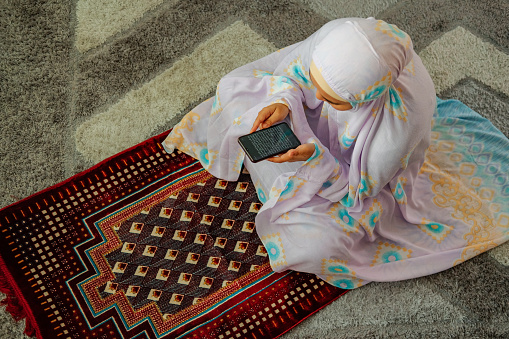Millions of Americans use seemingly ordinary apps to do ordinary things — only to have their locations and personal data sold to the military.
It’s “the ultimate example of what’s broken in digital life,” writes Shira Ovide in the New York Times On Tech newsletter: “The locations of people who used apps to pray and hang their shelves wound up in U.S. military databases.”
Originally reported this week by the Vice Motherboard news site, the activity is technically legal, Ovide writes, “but that doesn’t make it right.“
“It shows what happens when America’s vast and largely unregulated data-harvesting industries enable government surveillance with little oversight from courts or other outsiders.”
Many of the apps linked to this data supply chain (though far from all) are aimed at Muslims.
“The most popular app among a group Motherboard analyzed connected to this sort of data sale is a Muslim prayer and Quran app that has more than 98 million downloads worldwide,” Vice reports.
Motherboard traced “two separate, parallel data streams that the U.S. military uses, or has used, to obtain location data”: Babel Street, creator of the Locate X app, and a company called X-Mode, “which obtains location data directly from apps, then sells that data to contractors, and by extension, the military.”
X-Mode CEO Joshua Anton told Vice the company “tracks 25 million devices inside the United States every month, and 40 million elsewhere, including in the European Union, Latin America, and the Asia-Pacific region.”
The Locate X data itself is anonymized by Babel Street, one source told Vice, but “we could absolutely deanonymize a person,” adding that Babel Street employees would “play with it, to be honest.”
A Navy Special Operations spokesperson confirmed its purchase of Locate X data, saying that “we [the service] strictly adhere to established procedures and policies for protecting the privacy, civil liberties, constitutional and legal rights of American citizens.”
As Ovide concludes in the Times newsletter:
“We shouldn’t accept an army of companies scooping up bits of our lives and selling it to anyone, including actual government armies. We should be able to use a shelf-straightening app without fear of winding up in a military database.
“We deserve better.”
